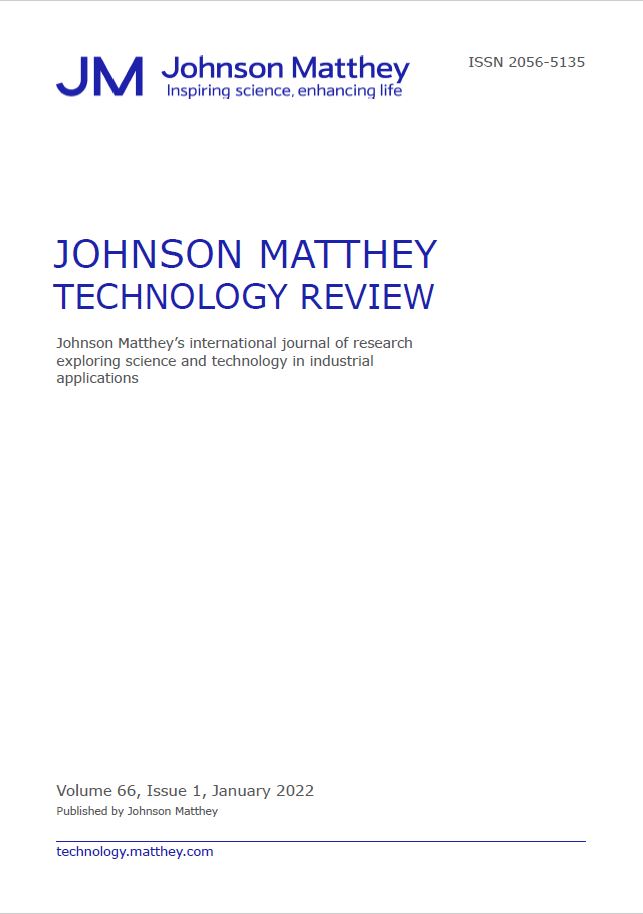-
oa Impact of Solution Chemistry on the Biotechnological Synthesis and Properties of Palladium Nanoparticles
Palladium solution chemistry plays an important role in the bioreduction of Pd(II)
- Source: Johnson Matthey Technology Review, Volume 67, Issue 4, Oct 2023, p. 438 - 448
-
- 20 Jan 2023
- 11 Apr 2023
- 13 Apr 2023
Abstract
The biosynthesis of palladium nanoparticles supported on microbial cells (bio-Pd) has attracted much recent interest, but the effect of solution chemistry on the process remains poorly understood. Biological buffers can be used to maintain physiological pH during the bioreduction of Pd(II) to Pd(0) by microbial cells, however, buffer components have the potential to complex Pd(II), and this may affect the subsequent microbe-metal interaction. In this study, a range of Pd(II) salts and biological buffers were selected to assess the impact of the solution chemistry on the rate of bioreduction of Pd(II) by Geobacter sulfurreducens, and the resulting biogenic palladium nanoparticles. The different buffer and Pd(II) combinations resulted in changes in the dominant Pd(II) species in solution, and this affected the amount of palladium recovered from solution by the microbial cells. The physical properties of the bio-Pd nanoparticles were altered under different solution chemistries; only slight variations were observed in the mean particle size (<6 nm), but significant variations in particle agglomeration, the extent of Pd(II) bioreduction and subsequent catalytic activity for the reduction of 4-nitrophenol (4-NP) were observed. The combination of sodium tetrachloropalladate and bicarbonate buffer resulted in bio-Pd with the smallest mean particle size, and the fastest initial rate of reaction for 4-NP reduction (0.33 min–1). Other solution chemistries appeared to damage the cells and result in bio-Pd with relatively poor catalytic performance. This work emphasises that future studies into bio-Pd synthesis should consider the importance of solution chemistry in controlling the speciation of Pd(II) and its impact on both the bioreduction process and the resulting properties of the nanoparticles produced, in order to maximise Pd(II) biorecovery and optimise catalytic properties.


